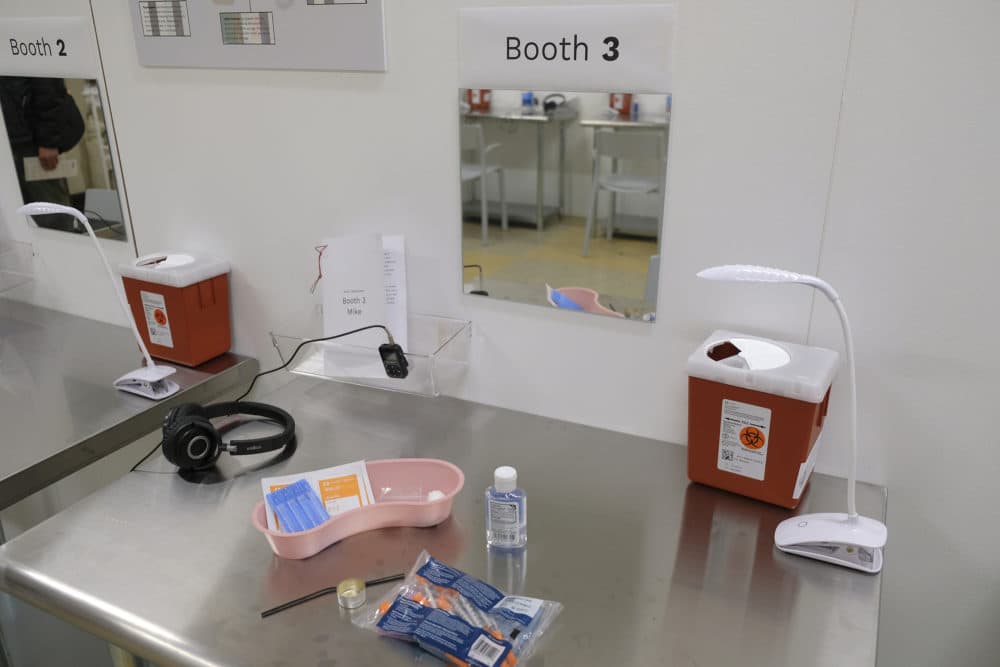Advertisement
Massachusetts Considers Allowing Supervised Drug-Use Sites

Proposals to let Massachusetts create sites where people could use illegal drugs in the presence of staff trained in helping to reverse overdoses will be the focus of a daylong virtual hearing Monday at the Statehouse.
One of the bills would create a 10-year pilot program “establishing two or more supervised consumption sites that utilize harm reduction tools, including clinical monitoring of the consumption of pre-obtained controlled substances in the presence of trained staff, for the purpose of reducing the risks of disease transmission and preventing overdose deaths.”
The site would have to provide sterile injection supplies, collect used hypodermic needles and syringes, and provide secure hypodermic needle and syringe disposal services — as well as offer referrals to addiction treatment and education on the risk of contracting HIV and viral hepatitis.
Similar proposals have met with political pushback in the past.
In 2019, Republican Gov. Charlie Baker said that such sites would be illegal under federal law and that the state should instead focus on legal actions to curb overdose deaths. At the time, he pointed to comments by former U.S. Attorney Andrew Lelling who said that regardless of any state law, drug users and employees at the sites would be exposed to federal criminal charges.
The idea of supervised sites has the support of groups like the Massachusetts Medical Society, the Massachusetts Hospital Association and the American Civil Liberties Union of Massachusetts.
The ACLU also backs legislation that would make personal possession of illicit drugs a civil, rather than criminal, violation, and offer people with substance use disorders a connection to potential treatment — proposals that will also be part of the hearing.
In July, Rhode Island Gov. Daniel McKee signed into law a bill authorizing the opening of so-called harm reduction centers where people dealing with addiction can take heroin and other illegal drugs under the supervision of medical professionals — making Rhode Island the first to enact such a statewide measure to combat the opioid crisis.
The hearing by the Joint Committee on Mental Health, Substance Use and Recovery will run from 9 a.m. to 5 p.m. Monday. From 9 a.m. until 11 a.m. the hearing will focus on the two decriminalization bills and from 11 a.m. to 5 p.m. on the three supervised consumption site bills.